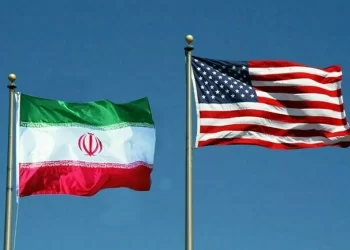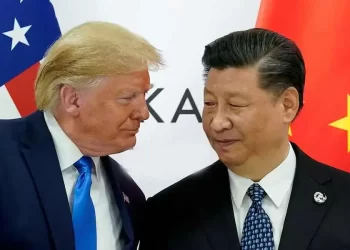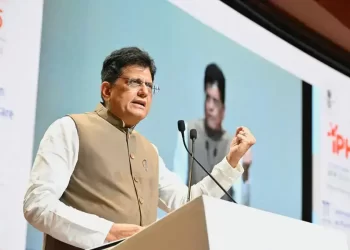Joe Biden’s withdrawal from the U.S. presidential race injects greater uncertainty into the world at a time when Western leaders are grappling with wars in Ukraine and Gaza, a more assertive China in Asia and the rise of the far-right in Europe.
During a five-decade career in politics, Biden developed extensive personal relationships with multiple foreign leaders that none of the potential replacements on the Democratic ticket can match. After his announcement, messages of support and gratitude for his years of service poured in from near and far.
The scope of foreign policy challenges facing the next U.S. president makes clear how consequential what happens in Washington is for the rest of the planet. Here’s a look at some of them.
With Vice President Kamala Harris being eyed as a potential replacement for Biden, Israelis on Sunday scrambled to understand what her candidacy would mean for their country as it confronts increasing global isolation over its military campaign against Hamas.
Israel’s left-wing Haaretz daily newspaper ran a story scrutinizing Harris’ record of support for Israel, pointing to her reputation as Biden’s “bad cop” who has vocally admonished Israel for its offensive in Gaza. In recent months, she has gone further than Biden in calling for a cease-fire, denouncing Israel’s invasion of Rafah and expressing horror over the civilian death toll in Gaza.
“With Biden leaving, Israel has lost perhaps the last Zionist president,” said Alon Pinkas, a former Israeli consul general in New York. “A new Democratic candidate will upend the dynamic.”
Biden’s staunch defense of Israel since Hamas’ Oct. 7 attack has its roots in his half-century of support for the country as a senator, vice president, then president. Israeli Defense Minister Yoav Gallant thanked Biden for his “unwavering support of Israel over the years.”
“Your steadfast backing, especially during the war, has been invaluable,” Gallant wrote on X.
Israeli President Isaac Herzog praised Biden as a “symbol of the unbreakable bond between our two peoples” and a “true ally of the Jewish people.” There was no immediate reaction from Prime Minister Benjamin Netanyahu, an ally of former President Donald Trump whose history of cordial relations with Biden has come under strain during the Israel-Hamas war.
Any Democratic candidate would likely continue Biden’s legacy of staunch military support for Ukraine. But frustration with the Biden administration has grown in Ukraine and Europe over the slow pace of U.S. aid and restrictions on the use of Western weapons.
“Most Europeans realize that Ukraine is increasingly going to be their burden,” said Sudha David-Wilp, director of the Berlin office of the German Marshall Fund, a research institute. “Everyone is trying to get ready for all the possible outcomes.”
Ukrainian President Volodymyr Zelenskyy said on X that he respected the “tough but strong decision” by Biden to drop out of the campaign, and he thanked Biden for his help “in preventing (Russian President Vladimir) Putin from occupying our country.”
Trump has promised to end Russia’s war on Ukraine in one day if he is elected — a prospect that has raised fears in Ukraine that Russia might be allowed to keep the territory it occupies.
Trump’s vice presidential pick, Ohio Sen. JD Vance, is among Congress’ most vocal opponents of U.S. aid for Ukraine and has further raised the stakes for Kyiv.
Russia, meanwhile, dismissed the importance of the race, insisting that no matter what happened, Moscow would press on in Ukraine.
“We need to pay attention,” Kremlin spokesman Dmitry Peskov was quoted as saying by a pro-Russian tabloid. “We need to watch what will happen and do our own thing.”
In recent months, both Biden and Trump have tried to show voters who can best stand up to Beijing’s growing military strength and belligerence and protect U.S. businesses and workers from low-priced Chinese imports. Biden has hiked tariffs on electric vehicles from China, and Trump has promised to implement tariffs of 60% on all Chinese products.
Trump’s “America First” doctrine exacerbated tensions with Beijing. But disputes with the geopolitical rival and economic colossus over wars, trade, technology and security continued into Biden’s term.
China’s official reaction to the U.S. presidential race has been careful. The official Xinhua news agency treated the story of Biden’s decision as relatively minor. The editor of the party-run Global Times newspaper, Hu Xijin, downplayed the impact of Biden’s withdrawal.
“Whoever becomes the presidential candidate of the Democratic Party may be the same,” he wrote on X. “Voters are divided into two groups, Trump voters and Trump haters.”








